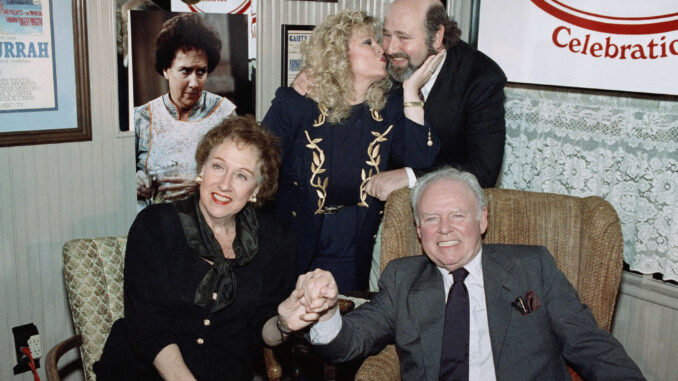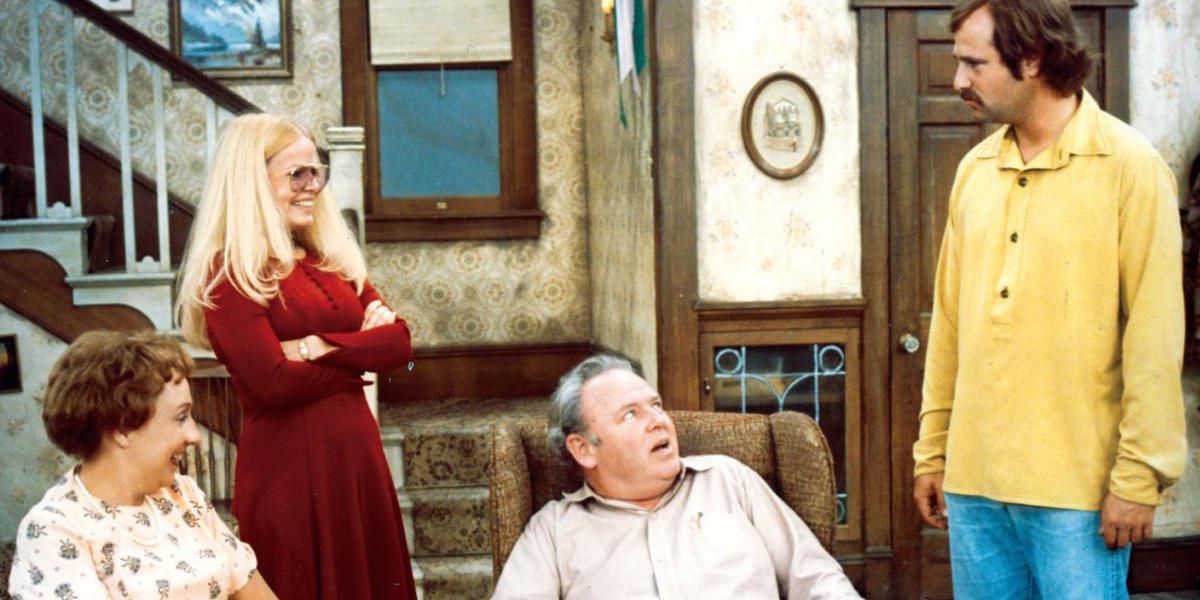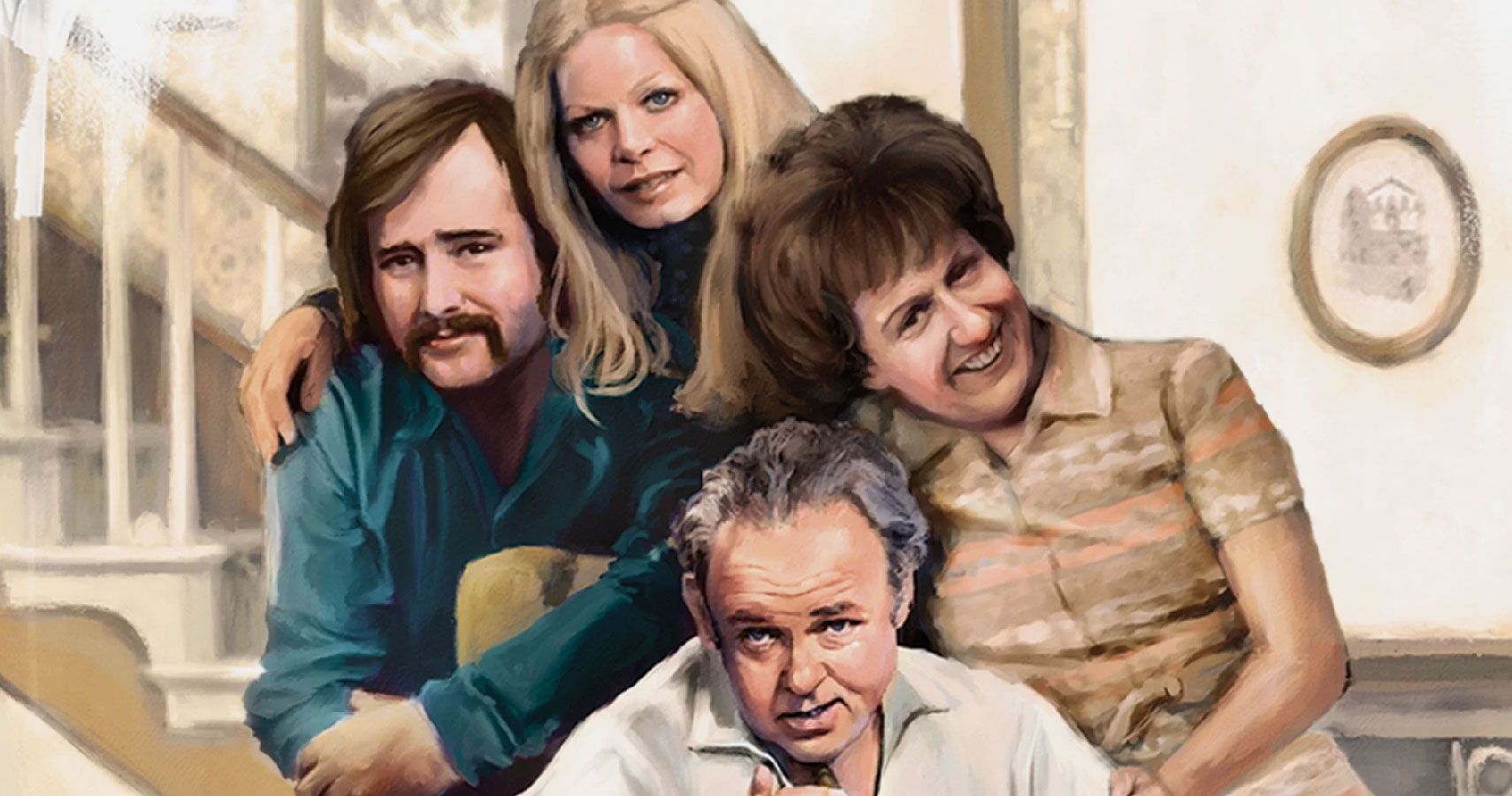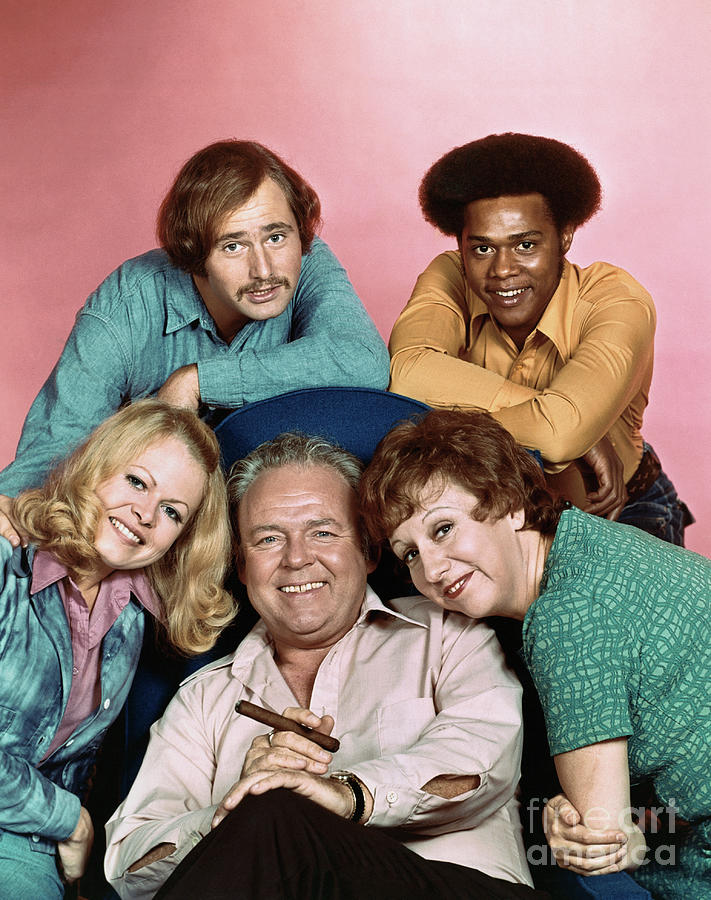
Now, he directs the biopic “LBJ,” starring Woody Harrelson as President Lyndon B. Johnson.
“A lot of people when they hear this, they go: ‘Woody Harrelson? LBJ?’ Wait’ll you see it,” Reiner told WTOP. “First of all, I wanted somebody from Texas, but more than that, I wanted somebody who could represent his humanity, his sense of humor, his sensitivity and the strength that he had. Woody was the perfect guy. He’s a brilliant actor. Wait’ll you see.”
Just as Steven Spielberg’s “Lincoln” focused solely on the 13th Amendment and Ava DuVernay’s “Selma” focused on the Voting Rights Act, Reiner smartly focuses on the Civil Rights Act of 1964. After the JFK assassination, LBJ assumes the presidency with the mantra: “Never underestimate the intensity of a martyr’s cause or the size of a Texan’s balls.”
“He was the consummate legislator and knew when to move on a piece of legislation,” Reiner said. “He’d never put anything on the floor of Congress unless he had the votes. Up until that point, he knew it wouldn’t [pass]. He said, ‘If you put it on the floor, it’ll never become law.’ [But] a horrible tragedy occurs and he understands the power of it and can get it done.”
Rather than start with the JFK assassination and move chronologically from there, Reiner intercuts the horrific day in Dallas in a series of flashbacks. This approach allows us to see the insecurities of an ambitious man constantly comparing himself to his popular predecessor.
“Everybody has this image of a bull-in-a-China-shop, arm-twisting tough guy who barked out orders, but he also had a very sensitive side,” Reiner said. “He was very insecure and paralyzed at times in making decisions. The best way to show this was the incredible pressure that was on him to assume the presidency in that moment in time, especially when you had a president who was beloved. Johnson never thought he could live up to the Kennedys.”
A constant thorn in LBJ’s side was Bobby Kennedy, who launched an ill-fated campaign for the Democratic nomination, while Vietnam-weary Johnson chose not to seek re-election.
“Bobby Kennedy and LBJ never got along,” Reiner said. “They didn’t like each other. They came from different worlds. Bobby didn’t even want LBJ on the ticket. It was JFK and his father Joe Kennedy who didn’t even tell Bobby because they knew he’d be furious about it. He was an antagonist. For all the great things Bobby was, when he related to LBJ, they were enemies.”
Throughout it all, his rock was First Lady Claudia “Lady Bird” Johnson, portrayed with grace by Jennifer Jason Leigh. In the film, we see her convince him to run for president by reminding him of the day he asked her to marry him, insisting that you must ask for what you want.
“Lady Bird was a source of tremendous strength,” Reiner said. “We showed this film at the LBJ Library and [daughter] Luci Baines was there. After we finished, I asked her, ‘What’d you think?’ I was so nervous. She said, ‘The man I saw on the screen tonight was the man I knew. … You also captured the relationship of my mother and father.” … He was filled with doubts and she helped him find his spine. Of course, once he was kicked into gear, he was off the races.”
It’s here that the film mines laugh-out-loud humor from Johnson’s brash public persona.
“Lyndon Johnson had a great sense of humor,” Reiner said. “Johnson was larger than life, he did crazy things like conducting meetings while he was in the toilet. So, he had all of that. There’s many recordings — we have a scene where he’s ordering his pants from his tailor from his office — it’s all true! These are all things Johnson [did]. He was crass, as they say.”
But beneath the crassness, Reiner shows LBJ’s deep political acumen and rare moral courage to defy his own base and end segregation by passing the key bill of the Civil Rights Movement.
“He knew he was going to be spending an enormous amount of political capital,” Reiner said. “He knew he would lose the Southern Democrats. He said very famously, ‘The South will be gone to Democrats for a generation.’ Turns out, it was many more generations than that.”
Not one to mince his political opinions, Reiner is no fan of the current administration.
“[LBJ] was steeped in government, policy and politics — you have to have an understanding of those three things [to] move an agenda forward,” Reiner said. “He understood that in his bones! We have a president now who not only doesn’t understand any of those things, but has no interest in wanting to understand those things. So as divided as we have been, we are more divided now with a leader who doesn’t have a clue as to how to even begin to unite us.”
After talking serious politics, we finished with a rapid-fire Q&A on his famous filmography:
‘All in the Family’ (1971-1979)
“Great experience. It was like getting a master’s degree in show business for me.”
‘This is Spinal Tap’ (1984)
“There’s a fine line between stupid and clever.”
‘Stand By Me’ (1986)
“From a personal standpoint, probably the most important film for me.”
‘The Princess Bride’ (1987)
“Inconceivable how well that film has survived the ages. I ruined a few takes [laughing].”
‘When Harry Met Sally’ (1989)
“Can women and men be friends? That was the question we asked — and I still don’t know the answer to that. … ‘I’ll have what she’s having,’ my mother said that, the funniest line of any movie I’ve ever made, and if you go to Katz’s Deli where we shot, you can sit at the table. There’s actually a sign at the table that says, ‘This is where Meg Ryan faked her orgasm.’”
‘Misery’ (1990)
“‘He didn’t get out of the cock-a-doodie car!’ That was what [Kathy Bates] said. She said, ‘I’m gonna put on all my Liberace records!’ She was so excited.”
‘A Few Good Men’ (1992)
“Of course [the dialogue], ‘You can’t handle the truth,’ but also the great experience of working with Jack Nicholson, Tom Cruise, a great cast and Aaron Sorkin, a brilliant writer.”
‘The American President’ (1995)
“‘I am Andrew Shepherd and I am the president.’ … You can’t get off of Dupont Circle!”
